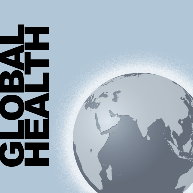 Sophie Harman and Simon Rushton
Sophie Harman and Simon Rushton
Rhetoric around the need for more and better leadership is ubiquitous in contemporary global health governance, yet there has been little articulation of what type of leadership is required, who might play leadership roles, and in what fora leadership might be exercised. Global health governance has widely been seen as a policy space characterised by a multiplicity of (often competing) actors with no overall authority. Nonetheless, major accomplishments exist, and in some cases there are impressive levels of collective action to address particular health problems. We argue that leadership provides an important lens for understanding how goals are met in global health governance. Drawing on the existing literature on global health governance and leadership and agency in international relations, we set out in this paper a framework for analysing leadership in global health governance. Crucially, we argue, such a framework must be specific enough to be operationalised in terms of a program of research and at the same time broad enough to capture a wide variety of different sources, sites and forms of leadership – including the roles played by ‘hidden leaders’ who are seldom acknowledged in mainstream analyses of global health politics.
